Steve travels #33: Shymkent, Shmymkent
Half an hour into my train journey to Tashkent I realise: I am actually a bit curious about these World Nomad Games. Mostly I’ve resisted because it felt like everyone was telling me that I should go. But now that I’ve probably left it too late, I’m much more motivated. That’s how it works.
Are there still tickets? Yes. Is there still accommodation? Yes, although it’s not the best. And trains? Yes. Ok, we’re doing this. A 4am train over the border to Shymkent, and the next day an 18 hour sleeper to Astana. In first class this time, because it’s not that much more than second class, and, well, curiosity.
A day later I realise the train to Shymkent is a dumb idea. It’s so close you can taxi it, yet somehow the train takes 7 hours, starting at 4am. So I cancel the train and schedule a night in Shymkent to break things up a bit.
Kazakhstan’s three largest cities are Almaty, Astana, and Shymkent. They’re basically Melbourne, Canberra and…Albury? The former capital with lots of life and culture, the purpose-built capital where everything’s a bit weird, and the perfectly pleasant and functional but not terribly interesting one.
The day begins in Tashkent with what feels like a routine: get up early, taxi to the border, work my way slowly through the two checkpoints, then acquire a sim card, cash and another taxi to onward.
A strange man appears while queueing at the very busy Kazakh checkpoint. He offers me a deal: pay him $10 USD and he will somehow fast-track me through the queues. But he’s not official, he’s just some guy. I’m confused. Hapless, I turn to a local family, who use a translation app to confirm I have understood. I tell them I’m just going to queue with them like everyone else. They’re pleased. From now on, we’re a team. The matriarch makes clear to everyone around that the spot directly behind her is mine, and no one else better take it.
A private taxi to Shymkent is looking expensive (around $40, for the 90 minute journey), so I agree to a shared taxi for $9. As usual, it won’t go until all the seats are filled. But then I find myself stuck, my backpack locked in the boot, while the driver disappears to find passengers. He takes so long that I want to bail, but the boot release lever is broken and he’s taken the key.
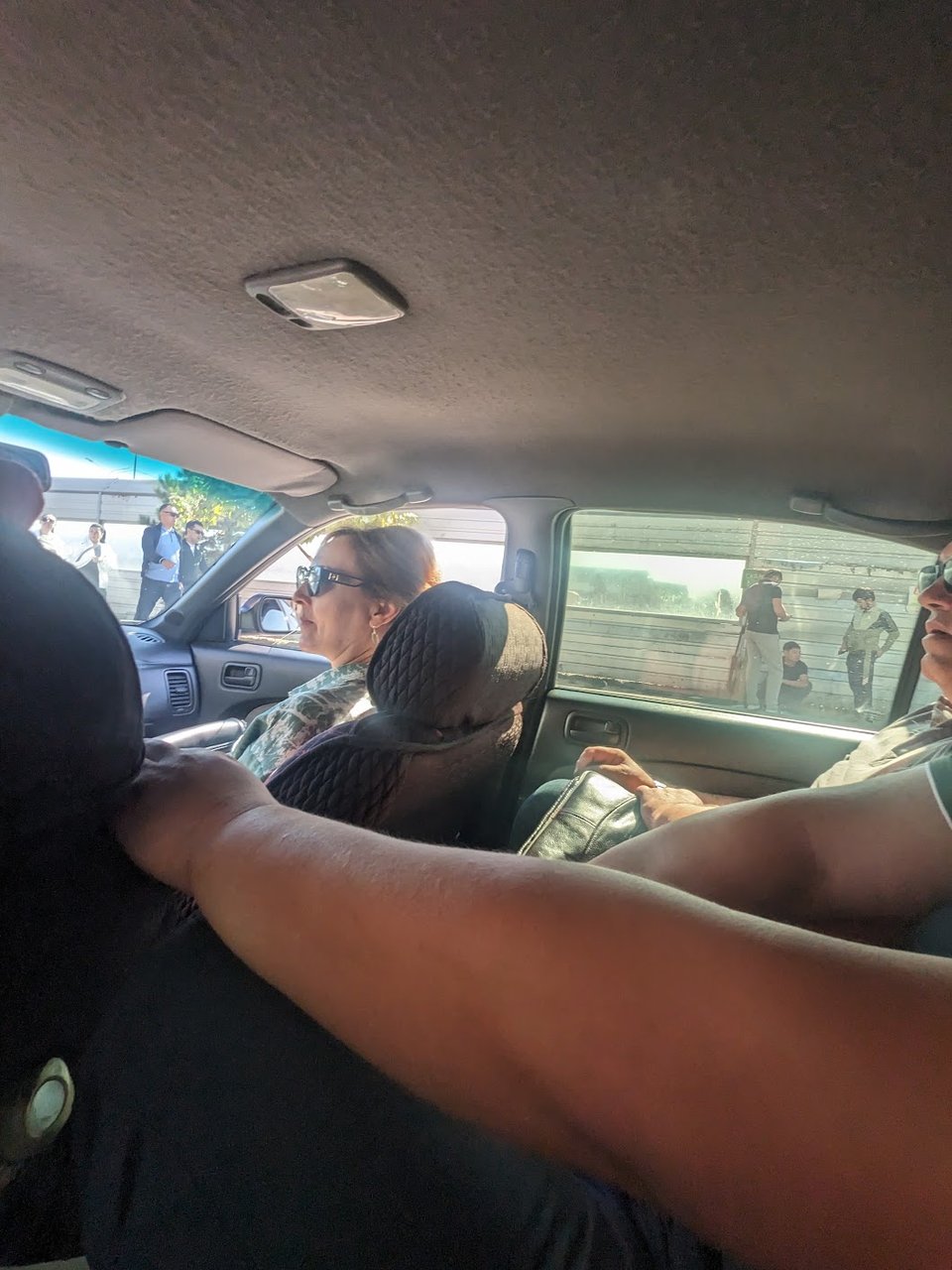
Just as I’m starting to get really irritated, he shows up. It’s clear what has taken so long: his quest to find the two largest men in southern Kazakhstan. It’s a very squishy ride and I feel a dope for not claiming the front seat, now occupied by a tiny woman.
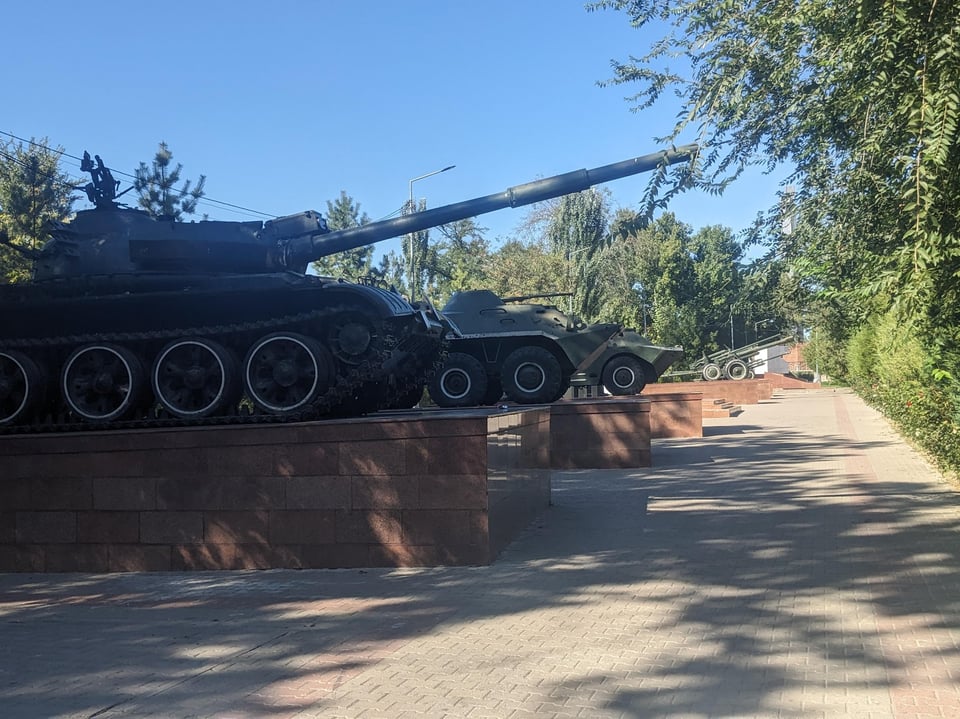
My aimless post-taxi wander in Shymkent fails to turn up much interesting. A decent bazaar. Some pleasant streets with nice restaurants. A park with a collection of army tanks, and this trip’s fourth fighter jet mounted on a pole - a MiG 15 perhaps.
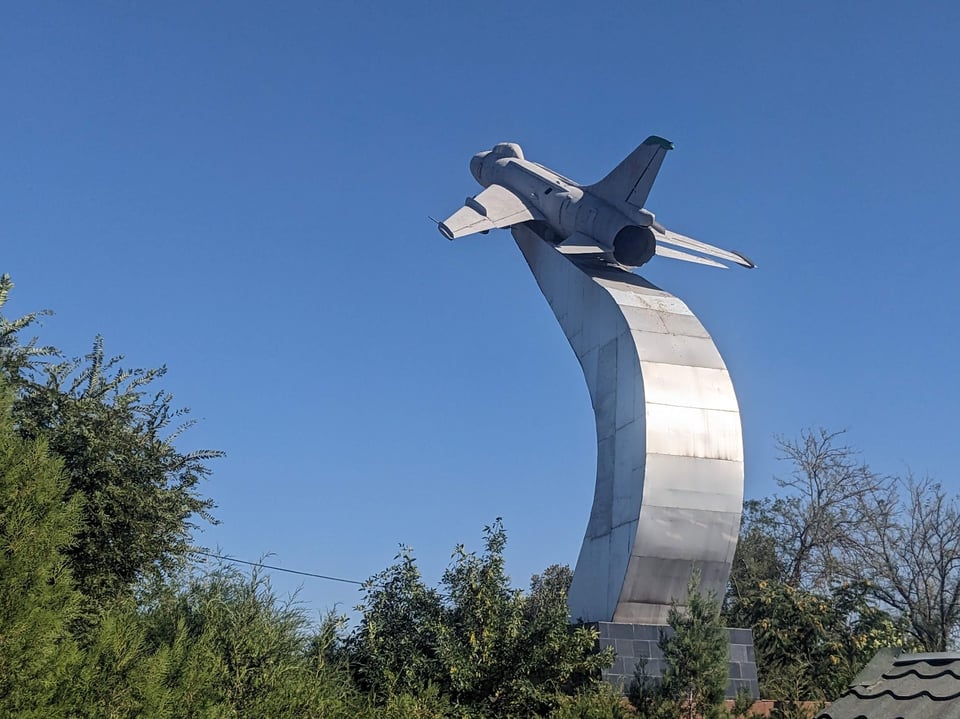
At a decent cafe (“flat white” on a menu is always a good sign) I spy a number of buckets of strawberries in the refrigerated cabinet. They look so tempting, I point enthusiastically at them, and say “yes” to every question I’m asked. What amazing concoction will they make from them? I can’t wait. Some time later I’m served…a plastic cup of strawberries, washed, but otherwise unadulterated.
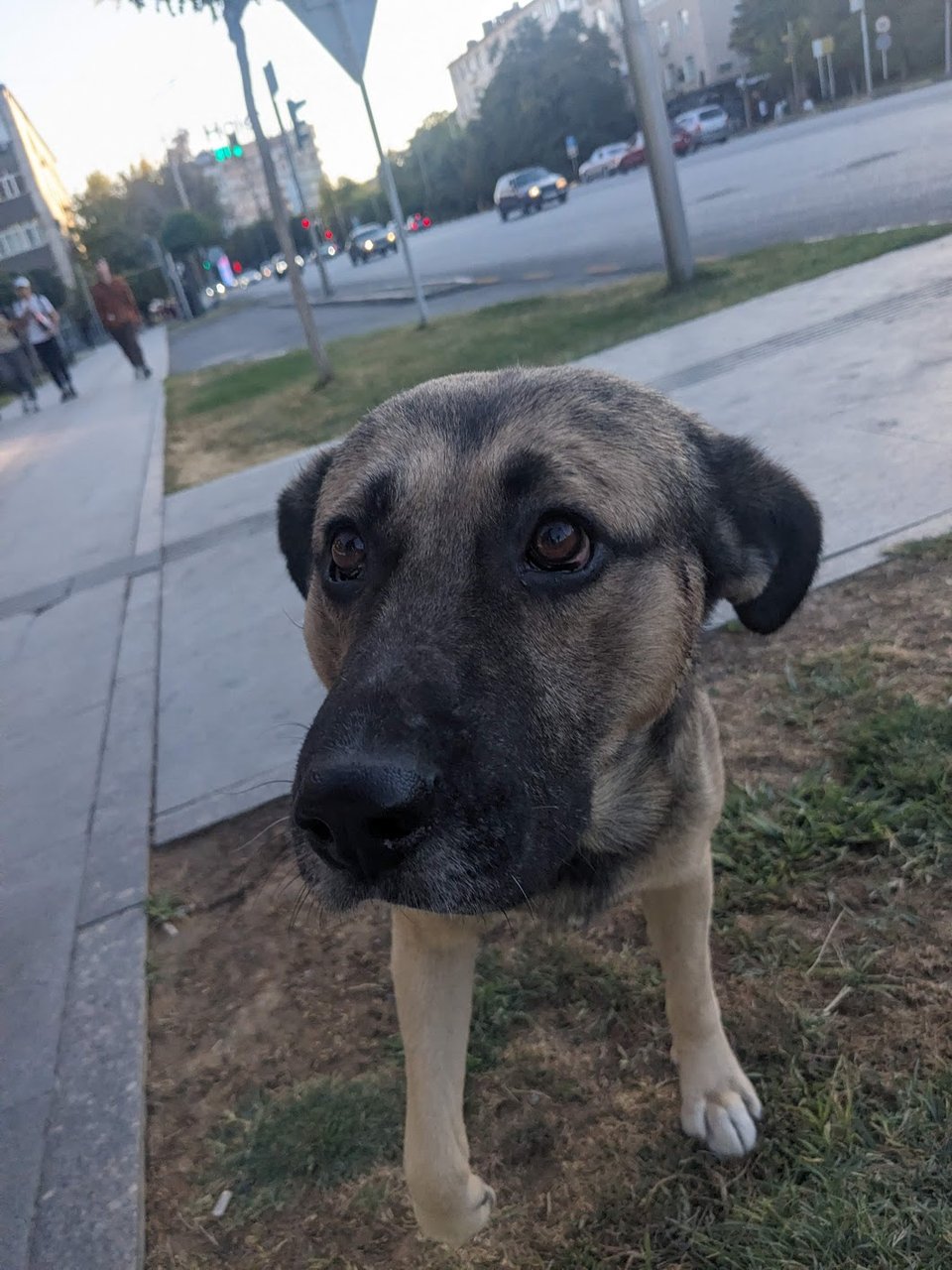
The walk finds a tennis academy, a pedestrian arcade, and a few nice modernist buildings, including a well-maintained circus and a theatre. It’s all nice enough but after 6 weeks in central Asia, none of it feels new or very interesting. What can I do to make this evening interesting?
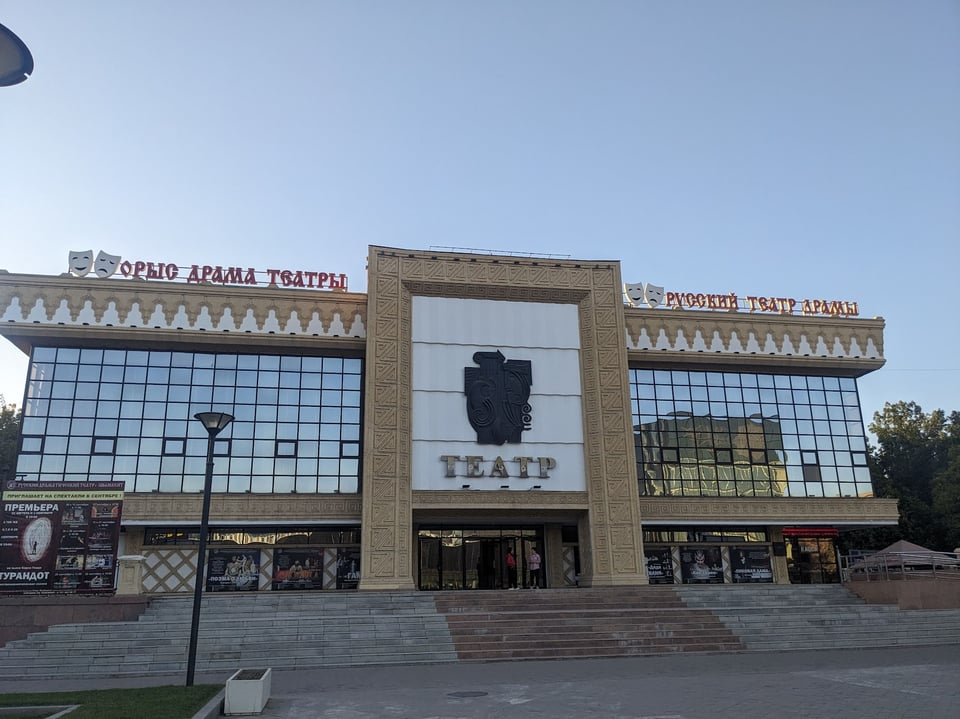
I stare at the theatre. An idea forms: is there anything playing? It’s 6pm on a Saturday night, the odds should be good. 5 minutes later I have a ticket to “Turandot 2162”, and an apprehensive feeling of excitement. Can I really sit through a whole play in Russian, a language I still only know about 10 words of - and I suspect “marshrutka” (shared minivan) and “shashlik” (barbecued meat on a skewer) are not going to be relevant.
The basic plot of Puccini’s Turandot, I learn in my quick pre-theatre study session, is a man Calaf who successfully answers three riddles set by Princess Turandot, in order to win her hand in marriage or die trying. Then, inexplicably, he offers to kill himself if she can figure out his name before dawn. She can’t, so she falls in love with him instead. Can you see why I’m not really into opera?
Turandot 2162 is, one assumes, set in 2162. I’m going to have to make a lot of assumptions, because it turns out the only four relevant words of Russian I can understand are “yes”, “no”, “prince” and “princess”. Helpfully, and surprisingly, these last two are pronounced exactly like in English.
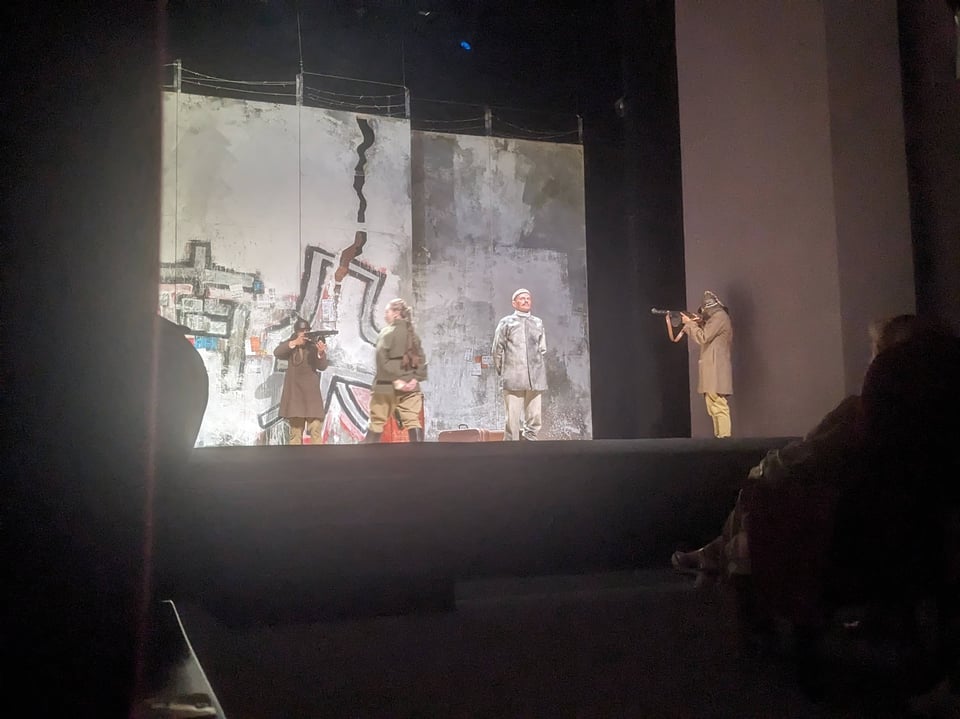
Things have gone post apocalyptic. Our Prince Calaf, who is dressed like Luke Skywalker, meets an old friend, who is poor and sifting through a rubbish bin beside a large concrete wall. The Prince has found a newspaper announcement about the Princess, who he is instantly smitten with. He goes to meet her and her kingly father, a series of three questions is asked, he answers them correctly while soldiers dressed in a sort of 22nd century version of 17th century central Asian battle uniforms point early 20th century machine guns at his head.
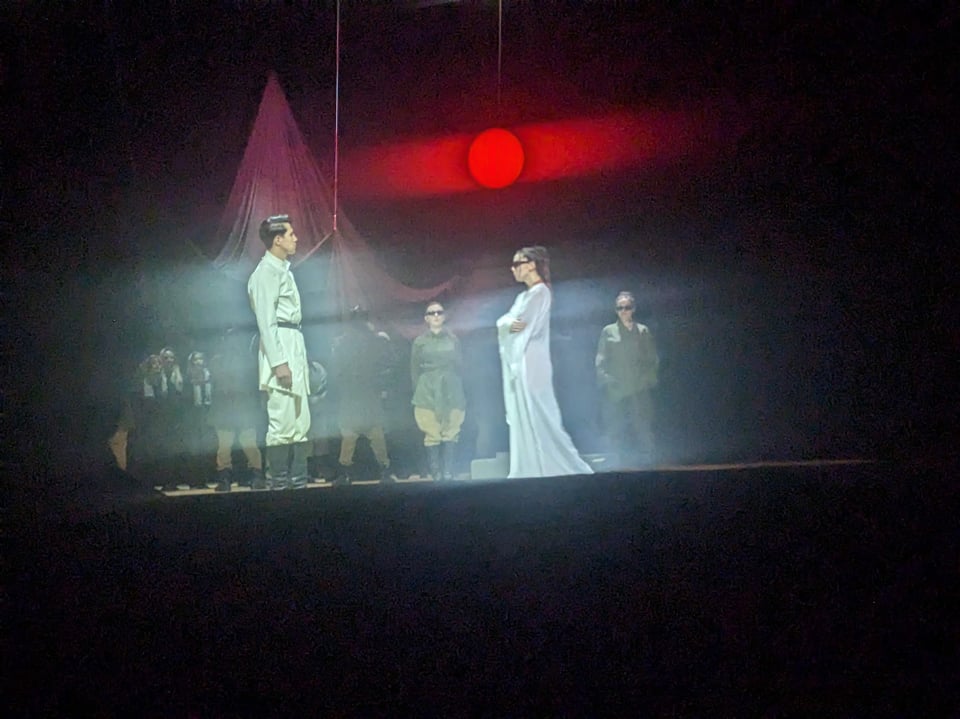
All of this takes place in the first 15 minutes, and makes sense, because I already read the plot. The next hour is trickier to grasp. There are lots of characters, including further princesses with whom he develops complex friendships, a middle aged maid who has a bad habit of getting guns pointed at her, a wise man in a turban who shouts a lot, and a lot of young people who remind me of ewoks. Everyone alternates between running and hiding, getting caught and released. The prince is pretty chipper no matter what, except for at the very end, when in front of Princess Turandot who seems to have fallen for his charms, he suddenly shoots himself.
Then there is a very awkward and slow transition to the bows and applause bit. The prince rises to his feet - is he a ghost, or is the play over? The princess joins him. They stand grimly on stage with sombre music, and no one is sure if the play is still going. A half hearted applause dies out. A few more actors come and join them, and eventually everyone decides this is definitely applause time. Now the actors are bowing, but the music is still sad, and the actors are all stony-faced. The whole cast is now on stage, and taking turns bowing. No smiles. The audience drifts in and out of synchronised clapping, and begins a listless standing ovation. A couple of audience members give gifts to the middle-aged maid actor. It’s all a bit weird.
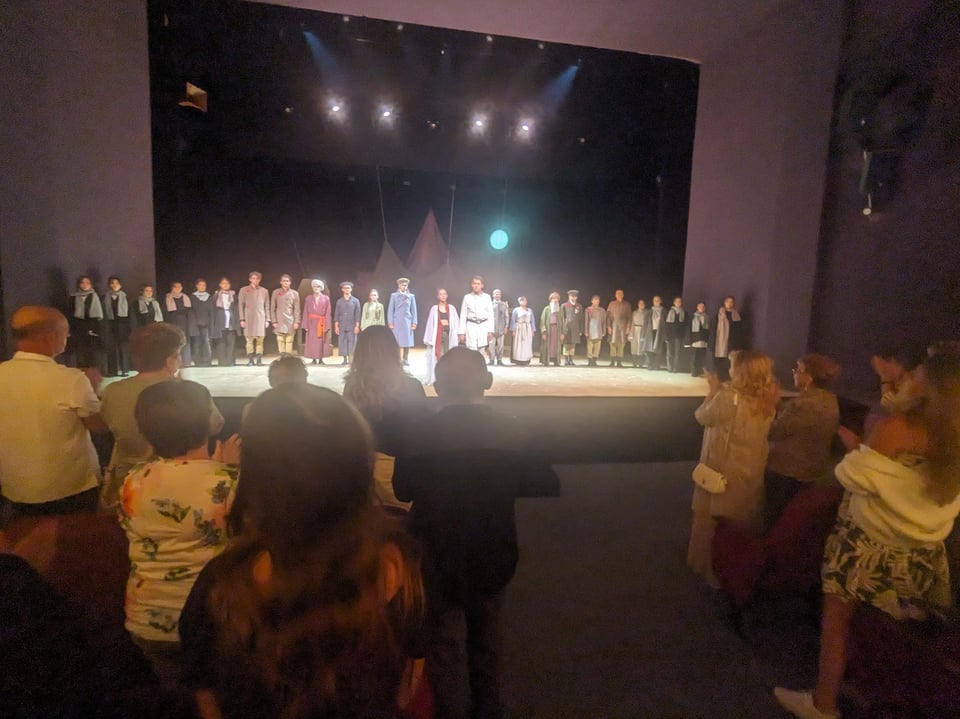
(There’s a rehearsal video here: https://yujanka.kz/zagadki-lyubov-i-strast-printsessy-turandot/ )
24 hours in this city is more than enough. Next step: a first-class cabin on an overnight train across the Kazakh steppes. Destination: Astana.